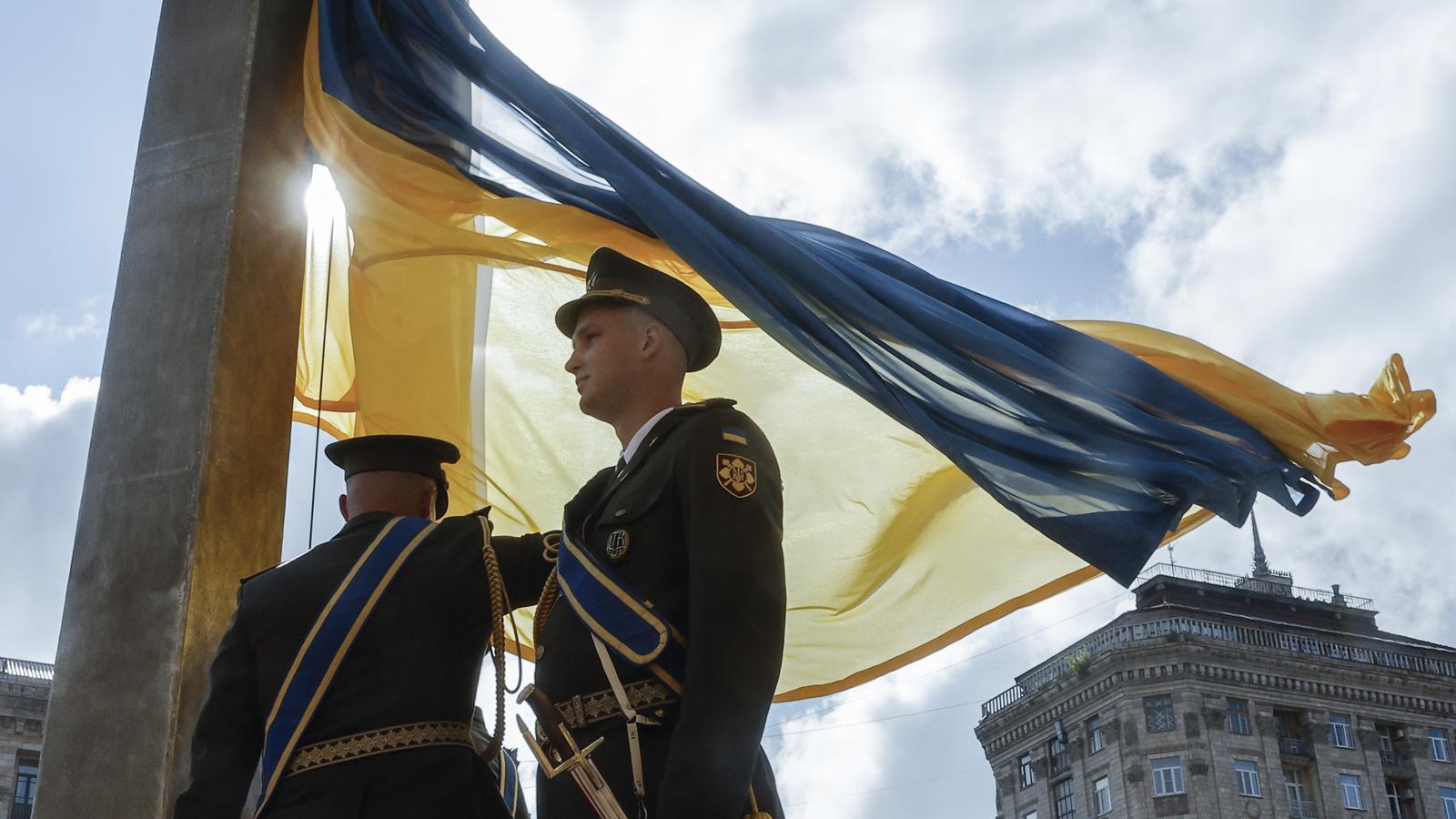Letter from the Ukrainian Consul in Barcelona: "We will emerge stronger from this existential war."

On the occasion of the national holidays of Ukraine –National Flag Day on August 23 and Independence Day of Ukraine on August 24.– I have the honor of addressing the Catalan, Valencian, and Balearic communities.
I am grateful for this opportunity to the Ukrainian armed forces, with the support of the Ukrainian people, as well as to the welcoming part of Spain, which has been by our side. during these almost 1,100 days of fightingWe are obliged to fight for the very existence of the Ukrainian people, to preserve Ukraine and its identity, so that each of us can live freely on our lands and follow our own path. It is not easy, but the defenders of our statehood are the heirs of the warriors of the Kievan Rus, the Cossacks, the Sich riflemen, and the fighters of the UPA [Ukrainian Insurgent Army].
We deeply appreciate the efforts of the Spanish state government and local authorities to accommodate some 84,052 temporarily displaced persons in the three aforementioned communities and to support many other residents of Ukraine.
Ukraine's independence is a consolidated statement that no longer needs any demonstration: it is a historical fact and the only acceptable form of existence for our country. Having an independent state is a conscious choice and our most valuable acquisition. The modern independence of Ukraine – 34 years since the adoption of the Act of Proclamation of Independence of Ukraine – is based on a thousand-year-old state heritage (from the formation of the Kievan Russo-Russian state in the 9th century, the emergence of the Proto-Ukrainian language in the early times; names of our people –"rusy", "rusychi", "rusyny"–, the national coat of arms –the trident– and the national currency –the hivnia). The use of the term Ukraine It is documented since 1187. Objective historical reality incontestably demonstrates that it is precisely Ukraine, and not an aggressor country like Russia, that is the legitimate heir to the state and cultural tradition of the Russian.
On December 1, 1991, in the national referendum, Ukrainians confirmed their aspiration to live in an independent state. 90.32% of voters answered affirmatively to the ballot question: "Confirm the Act of Proclamation of the Independence of Ukraine?" In Crimea, temporarily occupied by the aggressor country, the idea of independence was supported by 54.19% of voters; in the Donetsk region, 83.90%; and in the Luhansk region, 83.86%. The referendum demonstrated that the source of Ukrainian statehood is the will of the people.
The restoration of Ukraine's independence in 1991 led to the collapse of the "prison of peoples" that was the Soviet Union. During these three decades of independence, Ukraine has been, despite all the difficulties, an example of the viability of democratic institutions in the post-Soviet space, an alternative to the authoritarianism that has been imposed on other states that emerged from the USSR. The desire for freedom and sensitivity to injustice are defining traits of Ukrainians.
As had happened at other times in history, the peaceful and progressive development of an independent Ukraine began to irritate neo-imperial Russia. When all political and economic attempts to destroy the new Ukrainian statehood failed, Moscow resorted to armed aggression starting in 2014.
The Putin regime denies not only the existence of Ukraine as a sovereign state, but also the existence of Ukrainians as a distinct ethnic group. Furthermore, by encroaching on Ukraine's state sovereignty, the Kremlin regime wreaked havoc on the European continent, destabilized the existing system of collective security, and caused negative economic, ecological, political, and social problems. Therefore, respecting international law, the principle of sovereignty, and stopping the aggressor from once again becoming the "gendarmes of Europe" is a task for all civilized nations.
Today, Putin actively exploits the main mythologies of World War II and the Cold War. The aggressive confrontation with the West is presented as the supposed restoration of Russia's geopolitical greatness. The channels for disseminating propaganda are not limited to the media; cinema, entertainment, and the publishing industry are also involved—virtually the entire cultural space works to demonstrate the supposed Russian-Ukrainian unity or Ukraine's subordination.
All Kremlin spokesmen propagate the idea of the "election" and "oneness" of Russians as "older brothers" within the ideology of "Russian world» (Russian world). It is precisely this ideology that has legitimized Russia's supposed "right" to intervene in the affairs of neighboring states, particularly Ukraine, based on a false "indissoluble unity" with Moscow, a "common history," the Russian language, culture, and the Orthodox faith.
We Ukrainians are a people who, even in the harshest and most adverse historical conditions, have been able to defend their freedom, their truth, and their state. On the current path toward the EU and NATO, we are grateful to be able to count on the support of our partners and all those who contribute to the Ukrainian cause. We are encouraged by the institutional solidarity shown by government delegations, the Parliament of Catalonia, Barcelona City Council, as well as many other cities where the Ukrainian flag will fly these days and emblematic buildings will be illuminated in blue and yellow.
We will emerge from this existential war stronger, more resilient, and we will consolidate the will to win. For the reasons outlined in this document, guided by the love of our homeland and life, we are unstoppable when we act together. Democracies must remain united and use all their strength to ensure a just peace for Ukraine.
Oleg Grabovetskyy is the Acting Consul General of Ukraine in Barcelona.
